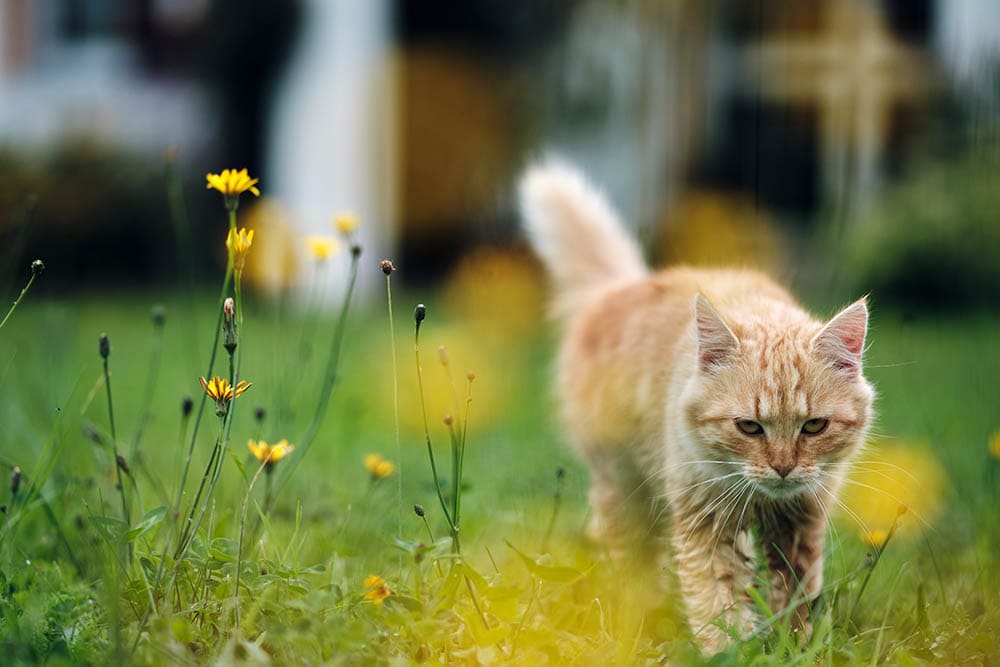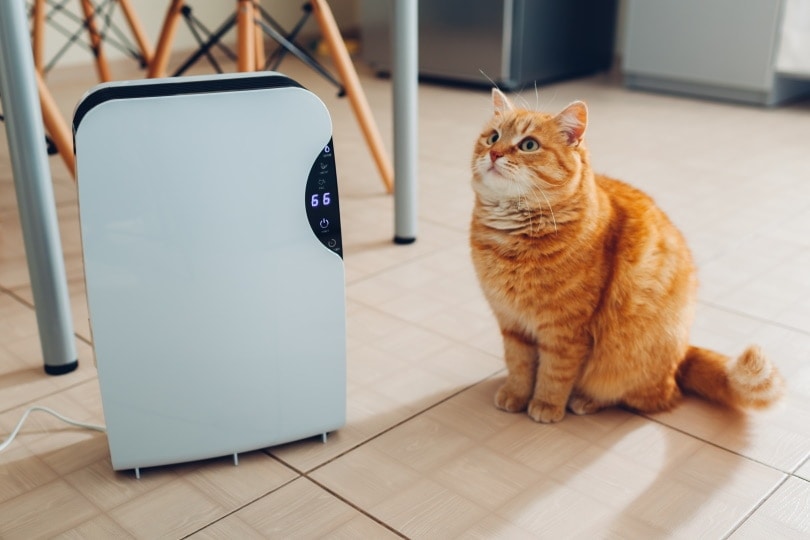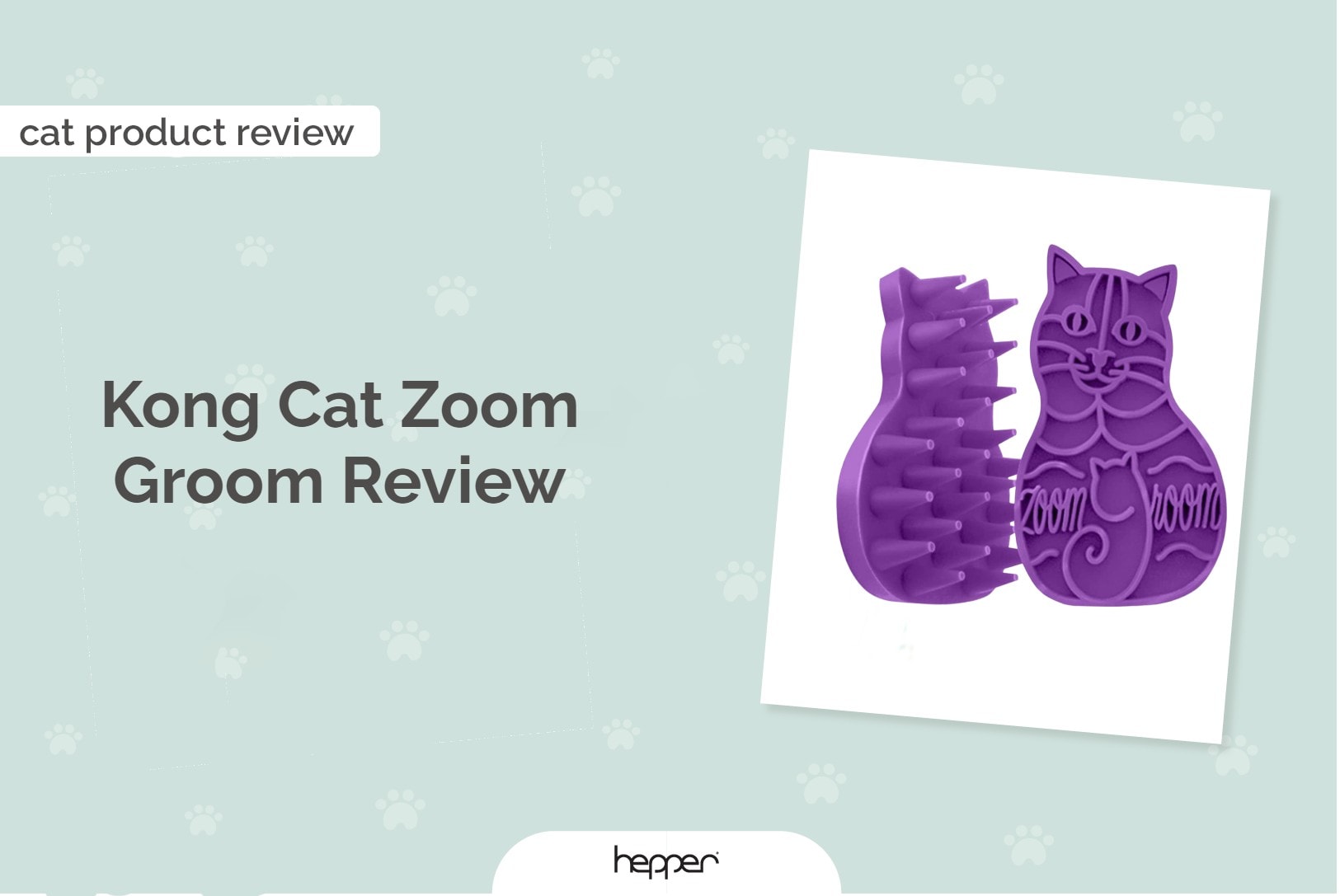Can Cats Eat Grits? Vet-Approved Facts & FAQ

Updated on
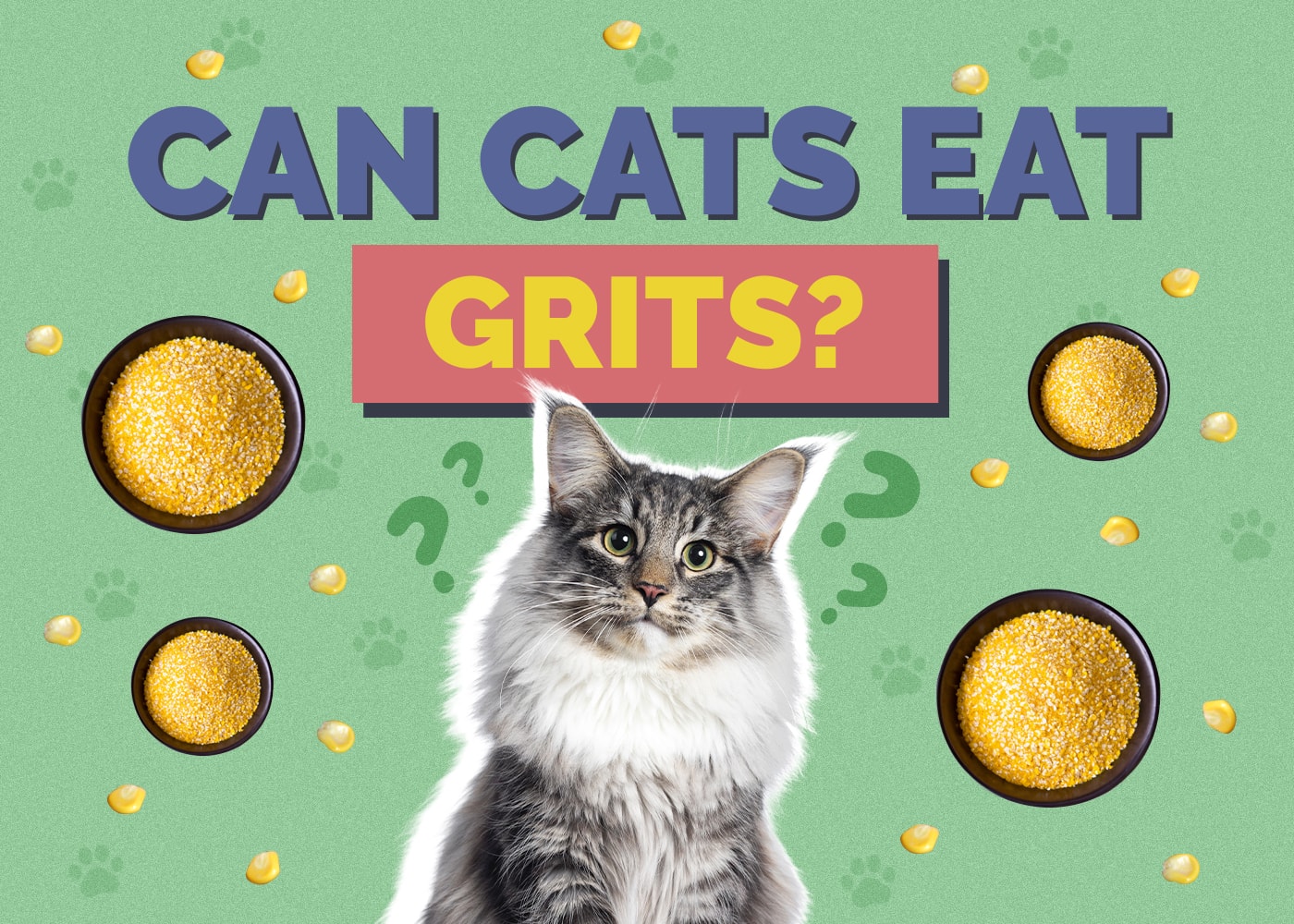
As cute as they are, our cats can be menaces when it comes to our forgotten leftovers on the counter. You turn your back for 5 minutes, and your hungry feline has helped themselves to half of your breakfast!
If you prefer a plain breakfast with no additives, like a simple grits dish, your cat eating your food isn’t necessarily alarming. On their own, grits aren’t toxic or otherwise harmful to your cat, but they shouldn’t be made a big part of their diet. The biggest issue comes in the form of milk, sugar, and other additives that you can add to your meal to make it more palatable.
Our choice of breakfast might be nutritional for us, but our cats are another matter entirely. This guide will help you understand whether your cat can eat grits and why they shouldn’t eat too much.
Can Cats Eat Grits?
Grits is a popular type of porridge made from boiled cornmeal. While it can be a tasty, savory, or sweet breakfast for us, it shouldn’t become a big part of our cat’s diet, no matter how much they wish otherwise.
As long as grits don’t become a major part of your cat’s diet, they won’t be adversely affected by eating the occasional mouthful. It isn’t recommended, though, especially if you add any sweeteners, milk, or other toppings to your breakfast. That said, in moderation, plain grits won’t harm your feline.
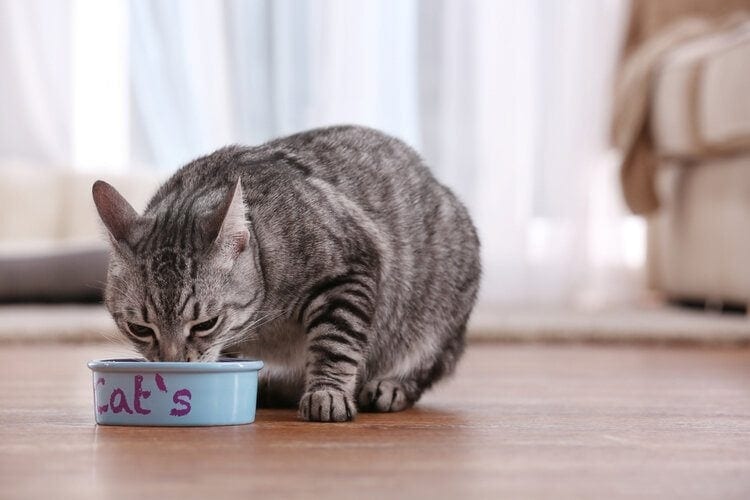
Can Cats Eat Corn?
Corn isn’t toxic to cats. It’s used in many manufactured cat foods as a filler, but it can cause stomach upset if a cat eats too much of it. This is due to your cat being an obligate carnivore, which means they get most of the nutrients that they need from a diet focused on animal protein. While they can eat some plant protein, which is often used in cat food, cats can’t process the amino acids that they need from plant matter alone. It’s why vegetarian diets NEVER work for our beloved felines.
What Foods Can Cats Eat?
Keeping our cats as healthy as possible is as simple as ensuring that their diet consists of the nutrients and minerals that they need to survive. Many people rely solely on commercial cat food with an Association of American Feed Control Officials (AAFCO) certification on the label. This means the food meets the AAFCO’s standards for nutrition and is suitable for your cat to eat.
Still, it’s nice to offer our cats something new to give them a break from regular old cat food. It’s never a good idea to make any of these foods a big part of your cat’s diet, but in moderation, a nibble now and then will give your cat a nice change.
If you’re not sure about any of these, you can ask your veterinarian or cat nutritionist for recommendations, or stick to commercial cat treats.
Eggs
The raw type might not be the best idea due to the risk of salmonella, but you can give your cat bite-sized pieces of cooked egg. Like meat, eggs supply a large amount of protein that can benefit your cat.
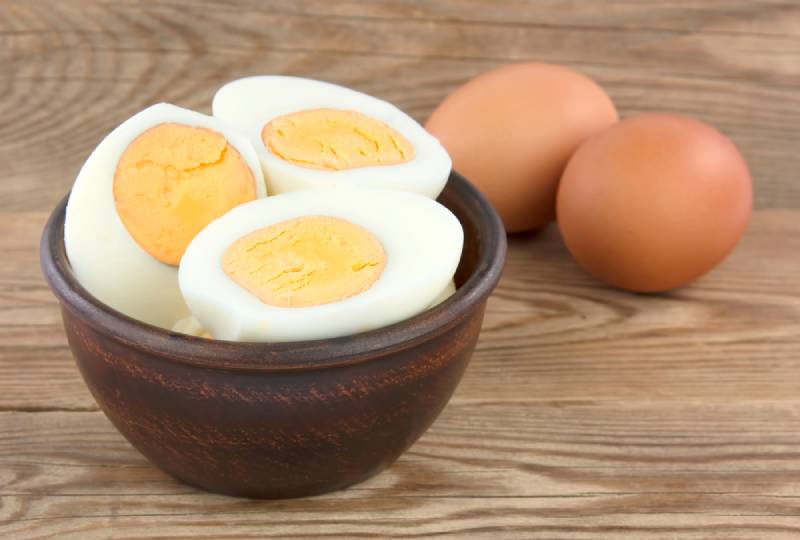
Fruits and Vegetables
Your cat might not be able to eat as many fruits and veggies as your dog can, but they can enjoy the occasional bite of certain fruits, berries, and vegetables. Moderation is key to avoid causing digestive issues.
- Asparagus
- Banana
- Blueberries
- Cantaloupe
- Cucumber
- Peeled apple
- Pumpkin
- Raspberries
- Spinach
When it comes to fruit and vegetables, fresh is always better. Canned fruit contains a large amount of sugar in the included syrup and isn’t recommended for your feline. Remember that fruits and vegetables aren’t a necessity for your feline. If your cat refuses to try them, you can rest assured that they aren’t being nutritionally deprived of any necessary nutrients.
Meat and Fish
Meat and fish are both good additions to your cat’s diet. Cut meat into manageable chunks with no bones. Fish is also a great source of omega fatty acids and can help keep your feline’s joints lubricated and their fur smooth. As with meat, ensure there are no bones in any fish you offer your cat.
For cats on a non-raw diet, remember to ensure that store-bought meat and fish are always fully cooked with no seasonings or added oil added to them during preparation.
Cats on a raw meat-based diet can be fed meats that are prepared with the appropriate safety precautions required for such a diet. However, cats should not be fed raw fish of any kind under any circumstances, as it causes thiamine deficiency in cats.

What Human Foods Are Toxic to Cats?
If you’ve been a cat owner for any length of time, you’ve probably experienced their wide-eyed look of betrayal when they find you eating something without them. Like feeding dogs table scraps, it’s always tempting to toss a morsel or two to our cats, but not all human food is suitable for their consumption.
In most foods, the sugar and fat content are much too high for them to be a suitable addition to our cat’s diet. A small piece of the cheese that you cut for your sandwich might be okay once in a while, but there are several foods that you should never give your cat.
- Alcohol
- Baby food
- Bread dough
- Caffeine
- Chocolate
- Garlic, onions, chives, and shallots
- Grapes and raisins
- Candy
- Any citrus fruits
- Avocadoes
- Any food with added sweeteners
- Dairy products (such as milk or butter)
- Dairy substitutes (such as margarine)
- Sushi or any raw fish
This list isn’t all-inclusive, and if you’re not absolutely certain that the food you’re eating is safe for your cat, don’t take the chance. It’s far safer for your feline and your wallet when it comes to veterinary bills if you only give them treats that you know won’t harm them.
Now that you know what you can safely feed your cat, it’s just as important to find a bowl that supports their health and well-being. With whisker-friendly bowls and a wide tray to catch any spills, our Hepper NomNom Cat Bowl is our favorite option.
Conclusion
Grits is a simple meal to make for breakfast with plenty of potential for variety. Your cat can eat plain, cooked grits in moderation. The biggest issue when it comes to your cat eating grits is the extras that you might add to make the dish more interesting. Depending on the toppings you enjoy, the harmless, non-toxic breakfast can become detrimental to your feline.
To have your cat remain as healthy as possible, especially if you’re not sure they can eat grits or other human foods without risking their health, keep human food away from your cat. Invest in cat treats that are known to be safe for your feline’s consumption, or ask your veterinarian or a feline nutritionist for snack recommendations that your cat will enjoy.
Related Reads:
Featured Image Credit: Katarzyna Hurova, Shutterstock






